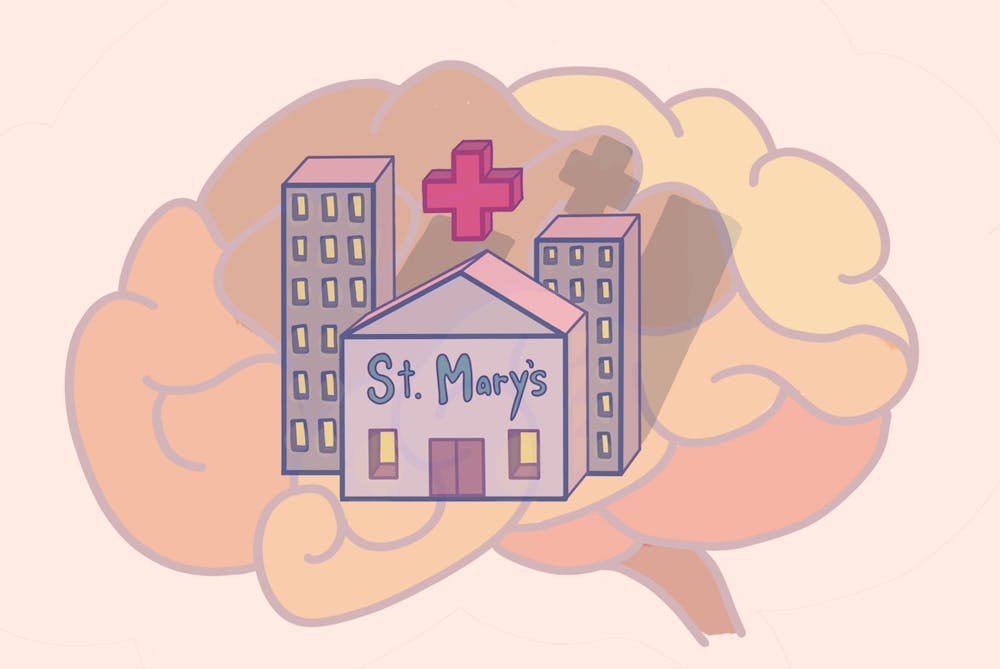With Rhode Island facing a shortage of psychiatric residential care for girls, state officials are recommending sending patients as far as Missouri to receive adequate inpatient psychiatric care.
To help address the shortage, state officials recently announced an expanded Psychiatric Residential Treatment Facility for girls at the North Providence campus of St. Mary’s Home for Children. The expansion, which will introduce 12 more beds for inpatient care for female adolescents, is expected to be completed in November 2024 and in operation the next year, according to a press release from the R.I. General Assembly.
Kevin Aucoin, acting director of the R.I. Department of Children, Youth and Families, said that St. Mary’s currently offers 21 psychiatric residential treatment beds for children aged 6 to 21, with 14 of those beds currently open to girls.
The construction of the facility will be funded by the $11 million allocation of pandemic relief funds approved by the General Assembly in June and has been framed as an effort to address the youth mental health crisis within the state.
“The need to expand psychiatric residential care, and even residential care, is absolutely acute,” Aucoin said. “The situation with regard to children’s behavioral health on a national and regional level is truly in crisis.”
R.I. currently has 69 youths, 31 of which are girls, in out-of-state treatment programs, 70% of which are within 60 miles of the state border, Aucoin said.
The state is “in the midst of a crisis in behavioral and mental health, particularly among our children,” Rhode Island State Senate President Dominick Ruggerio (D-4) wrote in a statement to The Herald.
According to Aucoin, the high number of children and youth placed in out-of-state treatment facilities could potentially be linked to the increasing demand for mental health care across the country during the COVID-19 pandemic.
While the 12-bed increase from the expansion of St. Mary’s will not fully accommodate the current number of youths out of state, Aucoin said the expansion “will go a long way to be able to offset the current acute need and demand for psychiatric and residential level care for adolescent females.”
According to Christopher Strnad, chief of children's mental health and education at DCYF, the state has actually “seen some pretty dramatic reductions” in the number of youth sent out of state. The number of girls sent out of state to receive mental health treatment increased by 35% in 2021, the Providence Journal previously reported.
The lack of local care options is also costing the state money. Sending children to out-of-state facilities costs millions more than local treatment, according to a newsletter issued last year by the State Senate Leadership Political Action Committee.
The lack of accessible treatment for young girls in R.I. is a “top priority for the Senate,” Ruggerio wrote, adding that he is particularly proud of St. Mary’s for being “part of the solution.”
As a psychiatric residential center, St. Mary’s offers different services than a typical residential treatment facility, according to Carlene Casciano-McCann, executive director of St. Mary’s. The center’s treatment processes employ a team that includes a psychiatrist, clinical social worker, occupational therapist, nursing staff and other health professionals.
“The idea behind psychiatric residential treatment is for it to be short-term,” Casciano-McCann said. “We want to stabilize youth and move them onto the next step.”
St. Mary’s is the only R.I. provider certified by the state and DCYF to operate such a facility, according to the press release.
Aucoin expects St. Mary’s expansion to have several positive effects on R.I. youth. In addition to reducing the number of children sent out-of-state for treatment, he anticipates shorter wait times for children discharged from Bradley Hospital, a psychiatric hospital in Riverside that offers mental health services to children and adolescents. Many children find themselves at Bradley Hospital before being brought to either St. Mary’s or an out-of-state psychiatric facility, according to Casciano-McCann.
Casciano-McCann added that a central impact of the expansion will be to keep youth closer to their families and familiar faces in their communities. “What we want to see with our youth is when they do leave us, that they have those community connections.”

Yael is a senior staff writer covering city and state politics. She is junior, and hails from the Bay Area.





